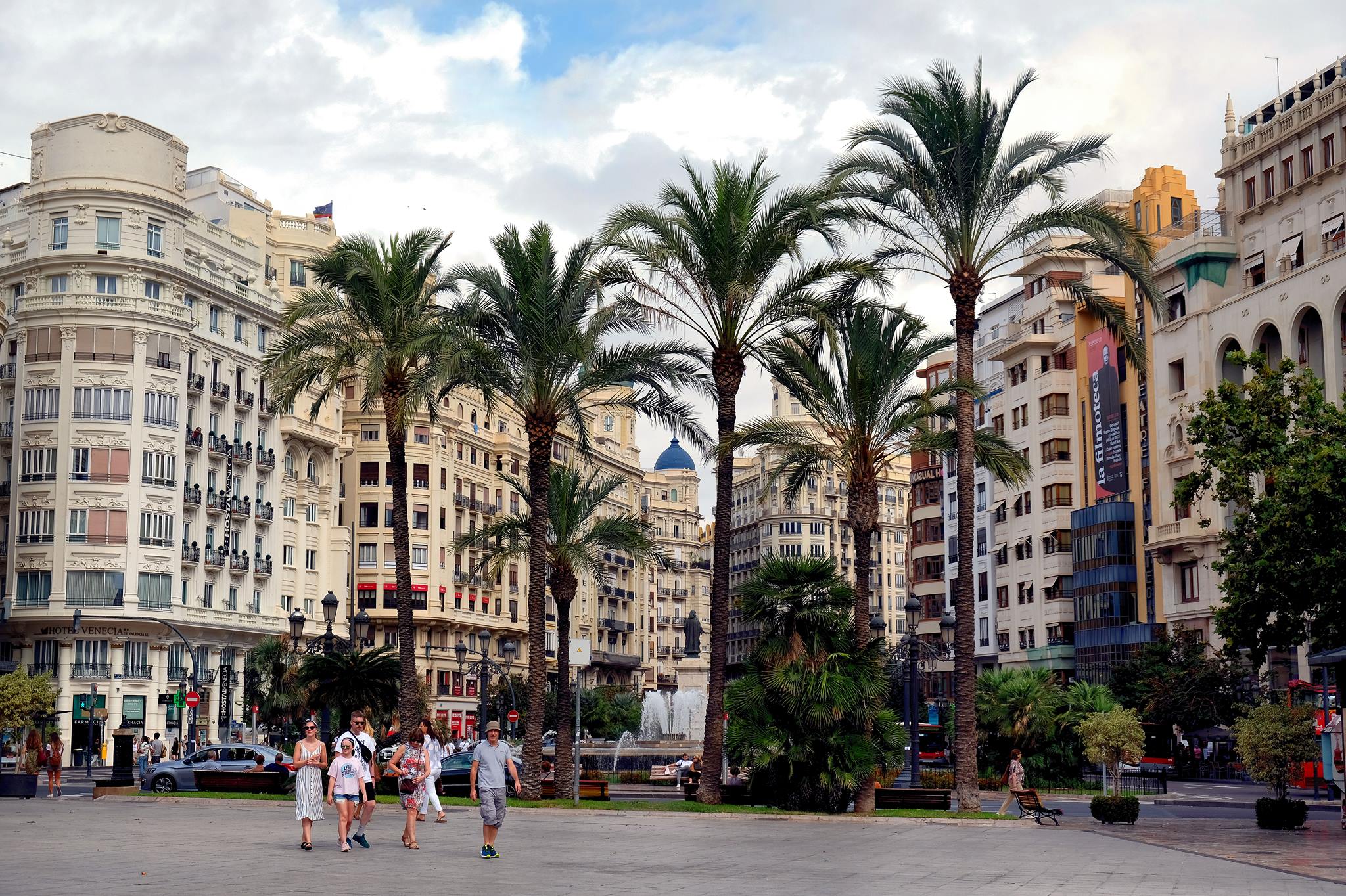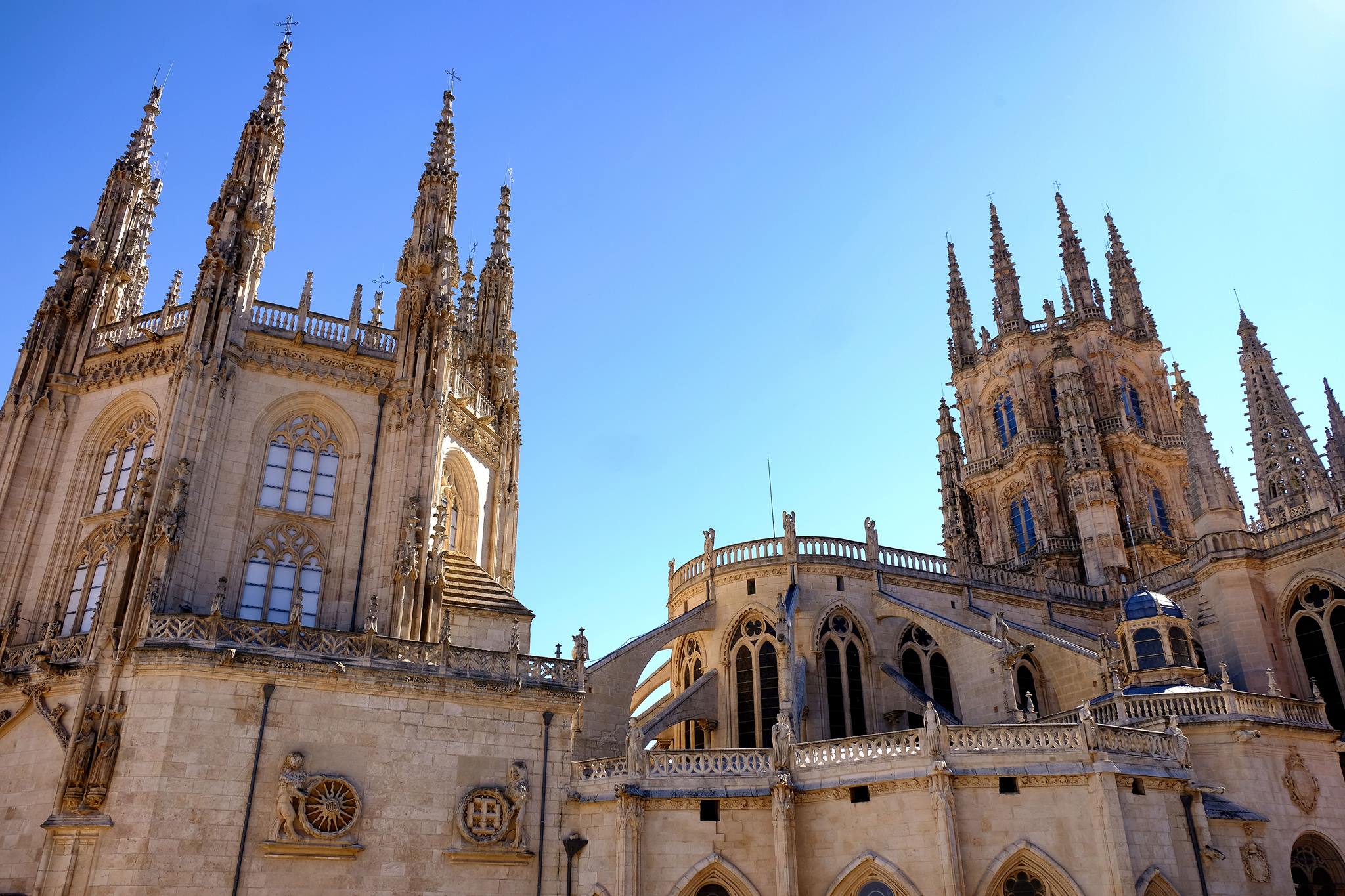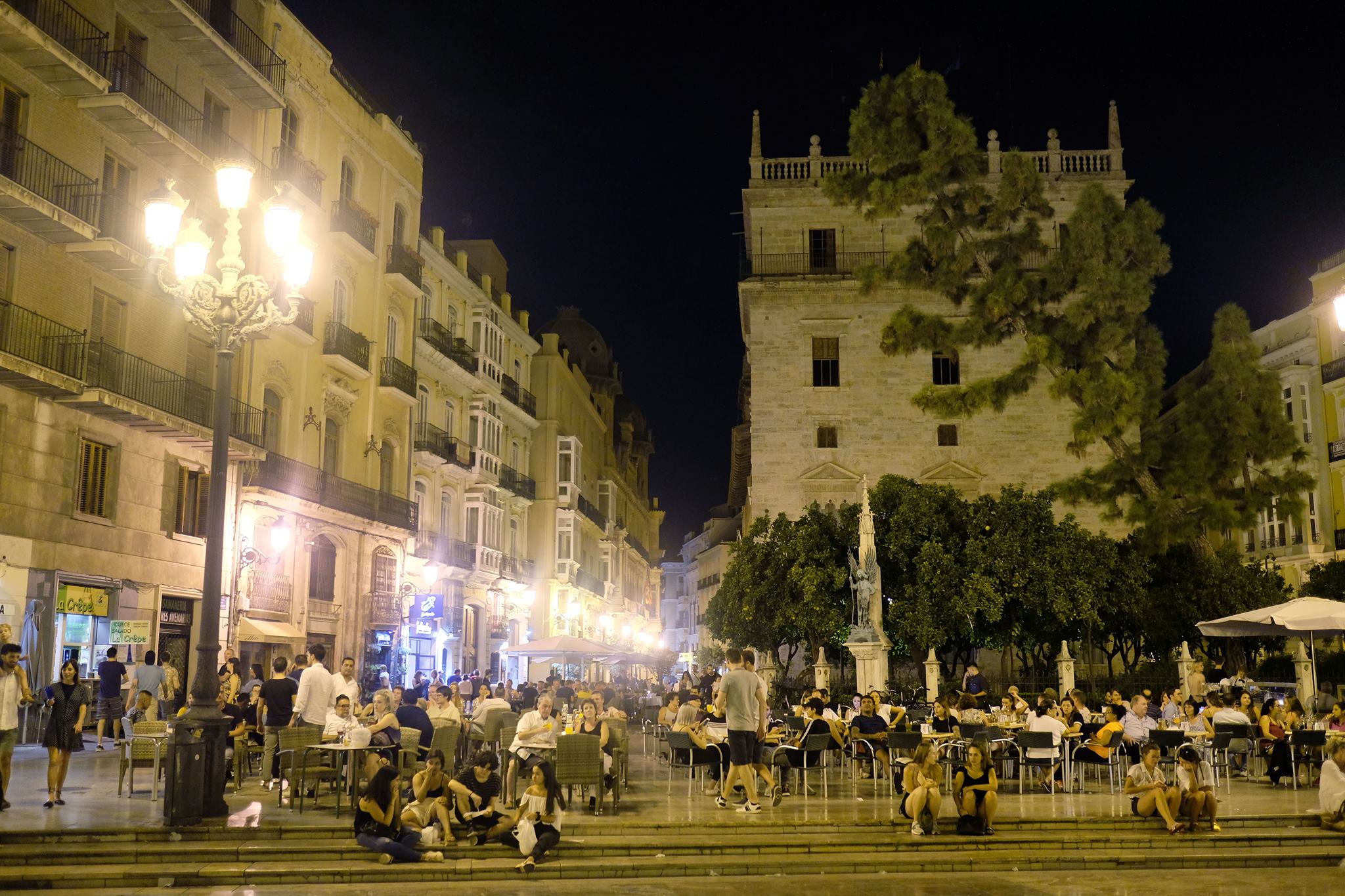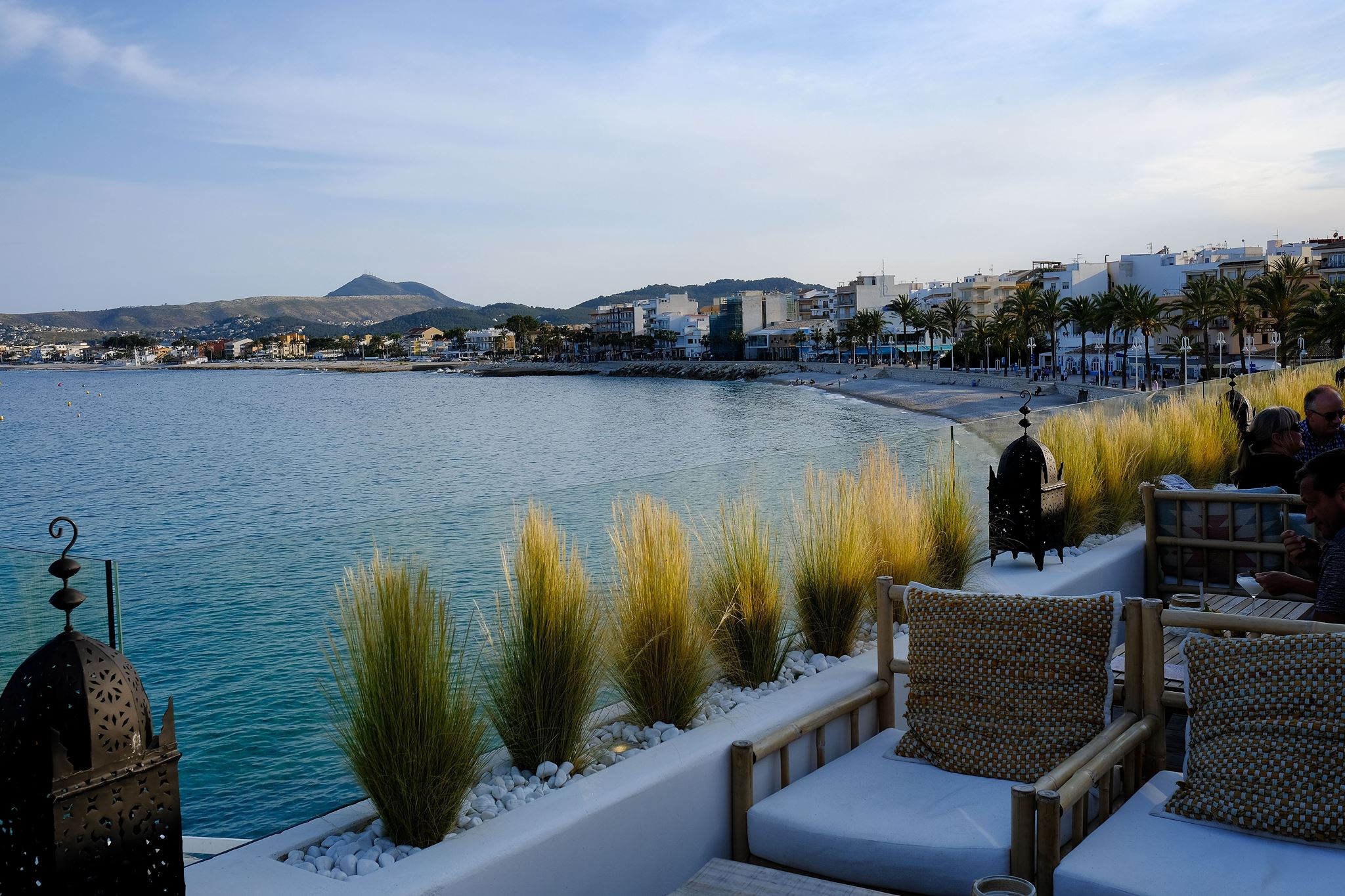Approximately two weeks ago I hit my six month milestone here in Spain, and as such, thought it would be a really great time to update everyone on my Spanish adventure.
Living In Valencia
In case you missed it, last year I applied for (and was granted) residency to live in Spain for a year. My original plan was to travel around Spain and potentially visit various different parts of the country over the course of my stay here. Unfortunately as soon as I arrived I quickly realized that one of the requirements of my residency required me to actual obtain a rental contract for at least three months. Unfortunately that basically meant my travel plans went out the window since I would need to rent an apartment somewhere. The city I eventually decided to stay in is the beautiful Mediterranean city of Valencia.

Valencia, Spain
I’m really happy with that decision for the following reasons. First, I really like being near the ocean. In terms of large Spanish cities, that limits you to Barcelona, Valencia, and Malaga mostly, as most of the other large cities are inland. While I don’t live right next to the ocean, it’s just a short metro ride or a bike ride away, which is great.
Second, in terms of Spanish culture, Valencia has a nice balance between local culture (such as the annual Fallas festival), and a fairly vibrant ex-pat community. Many locals that I talked to last year encouraged me not to choose Barcelona, mostly because it’s become overrun with tourists and is starting to lack in Spanish culture. Madrid and Seville were both on my list as well, but since they aren’t close to the water and have rather unique climates (Madrid gets quite cold in the winter, while Seville, known locally as ‘the frying pan of Spain’, can reach 50C in the summer).
And lastly, Valencia is really very affordable compared to many other larger Spanish cities. While rent isn’t as cheap as it used to be, in general the low cost of both food and alcohol more than make up for it. For example, a typical glass of wine at a local restaurant runs about 2€ ($3 CAD) normally, with tapas usually costing from between 5€-8€ each. In the supermarket you can buy a whole chicken for 4€, and a bottle of wine for 2-3€. Taken together, a normal meetup with friends in the evening, complete with lots of food and wine usually runs less than 20€, which would be about $30 CAD back home.
Meeting People
Meeting people can be difficult in any new environment, and I encountered a bit of that myself in Valencia. Spanish people tend to have tight social circles, with most adults essentially hanging out with people they grew up with. So as a foreigner it can be pretty difficult to get invited into one of those circles, even more so if people think you will just be leaving again soon. So I certainly haven’t met as many actual Spanish people as I had hoped.
But Valencia does have a very active ex-pat and remote worker community, and I’ve met and become friends with various members of the Valencia Coffee and Co-working Group. That group meets weekly for co-working and evening drinks, and it’s been great hanging out with most of them and getting to know some of their reasons for moving to Spain as well.
Learning Spanish
When I first arrived in Valencia, I took an intensive Spanish class to augment what I already knew. That was actually really quite useful, but unfortunately I found it really difficult to work while going to school as it was just *too* intense – four hours of class per day plus homework in the evenings. I found myself pretty exhausted each night.
Since most of my friends here are expats as well, I haven’t had too many opportunities to practice Spanish on a daily basis (other than ordering food and what-not, but that’s pretty routine). That said my comprehension has definitely gone up, and I can certainly communicate much better than when I arrived. But I do need to focus on it a bit more deliberately going forward if I really want to improve.
Traveling Around
I live 10 minutes from the main train station in Valencia, which means it’s quite easy to go on a weekend trip whenever I want. I went to Burgos one weekend to meet some friends walking the Camino de Santiago, and that took me about 10 hours by train. But getting to Barcelona is only about 3 hours by train, Madrid is only 2 hours (via high speed train), and Seville about 5 hours I believe. So while Madrid is probably the best spot to explore Spain from, Valencia is quite well connected as well.

Burgos Cathedral
I’m hoping when I renew my residency next year that I’ll be able to explore around Spain a bit more.
Quality of Life
One of the aspects that eventually made me choose Spain as the country I wanted to try living in was the work/life balance. Someone from North America would probably look at someone in Spain or Portugal, seemingly always out enjoying themselves, as lazy. But the truth is the Spanish people I know are all hard workers. What is different though is that they look at work as a way to enable them to do the things they want, and not as a way to accumulate a lot of expensive items like most people in North America do. So this translates more into a work-to-live philosophy as opposed to the live-to-work one you see in many other countries.

People out eating and drinking around midnight
Dinner in Spain doesn’t really start until 9pm or so, which often means if you are going out that you are going to be out until midnight or later. But once you get used to it, it’s actually really quite nice. The idea of eating dinner at 6pm now seems a bit strange to me, and I really enjoy the late evening dinners (which are often much smaller than we would eat back in North America – tapas and beers amongst friends, for example).
Customer service isn’t that great in Spain – if you order a drink, it’s more likely they will forget it here, or if you are ready to order, sometimes it’s hard to convince someone to take your order. But you get used to it after a while, and just adapt – for example, if you nobody is taking your order, you simply kill more time talking to your friends without getting too worked up for it. They have an expression here in Spain, “no pasa nada”, which basically means “don’t worry about it”. So whenever I hit something like that in Spain, I just smile and reminded myself “no pasa nada”.
What’s Next
In just a few weeks I’m heading back to Canada for my first visit since I arrived in Spain, which I’m looking forward to. Until then, I’m down in Javea near the ocean, which is one of my favourite spots near Valencia.

Beach House, Javea, Spain
Once I get back to Spain, likely at the end of May, I’ll likely do a bit travel around the country and start the process of renewing my non-lucrative visa. My first visa is only for one year, but once the renewal is complete, I’ll be able to live in Spain for another two years. I still have to figure out what my long term plan is, but in pure Spanish style, am not too concerned with it at this point and am quite content to just enjoy my moments 🙂
